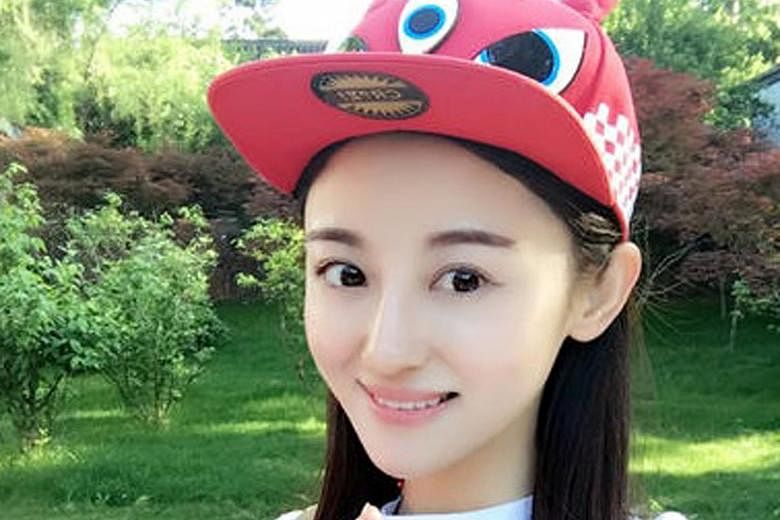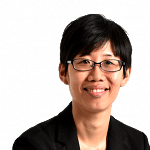The death of a young Chinese actress has re-ignited debate in China on the effectiveness of traditional Chinese medicine (TCM) in treating illnesses such as cancer.
Kitty Xu Ting, 25, died on Sept 7, two months after being diagnosed with lymphoma, a type of blood cancer that affects the immune system.
She had written in a Weibo post in July saying she would forgo Western medicine for TCM therapy.
"Frankly, I'm not sure if TCM can cure my illness, but I know that chemotherapy is extremely painful and could even hasten my death," she wrote on July 9 on the Chinese microblog site.
Chemotherapy could torment her and destroy her beauty beyond recognition, causing her to lose both her life and money, she said.
She thus opted for treatments such as acupuncture, cupping, bloodletting and guasha, the last involving the skin being scraped to produce a light bruising.
This continued for a month before she finally turned to chemotherapy. In a Weibo post late last month, her sister Xu Dandan blamed the "many quack doctors" for the delay in proper treatment, the Chinese media reported.
Her death has started another round of arguments between netizens who support Western medicine and proponents of TCM. Chinese singer Yao Beina, who died of breast cancer early last year, also sparked debate over her choice of TCM to control her illness after surgery.
In Xu's case, some netizens and fans suggested that she had been killed by TCM as cupping and bloodletting had allegedly worsened Xu's illness. A doctor by the nickname of "Bang Bang Yi Sheng" branded Xu's TCM practitioners as "cruel and merciless" for administering the treatment they did.
Many netizens were posting on Xu's Weibo page as she shared graphic photos of her treatment in July and August describing the pain that she suffered. Most of them urged her to seek treatment at a big hospital and switch to chemotherapy at once.
"TCM is only for after-treatment care," said a netizen who claimed to have suffered from cancer. "I would have died if not for chemotherapy... You will regret if you delay any further."
Another netizen advised her to "stop causing bodily harm" to herself and seek "proper scientific treatment" for her cancer.
Some commentators in the mainstream media said that dubious TCM practitioners are the real culprits. "Xu Ting's death may not have been caused by TCM, but by some fraudsters who claimed to be TCM doctors," said a commentator in The Beijing News. "It is just like We Zexin (the university student who died after receiving experimental cancer treatment earlier this year), who didn't find Western treatment, but found a bunch of... cheats who operated under the guise of 'advanced Western treatment'."
Second-generation TCM practitioner Dong Xiaofeng, from southern Guangdong province, told The Sunday Times he noticed that there have been more patients drawn to TCM in the past few years.
"As the industry becomes more lucrative, it's inevitable that some unqualified people will come in to take advantage of the situation," said the 34-year-old. "This has made it difficult for the really good doctors. They don't have a good environment to practise in."
He also pointed out that there are very few TCM practitioners who possess good theoretical training and deep clinical experience.
But most of the critics are not totally against TCM. The prevailing view is that Xu should have first sought Western treatment and supplemented it with TCM afterwards to nurse herself back to health.
Many, including those who seek TCM treatment regularly, still do not have faith in the efficacy of TCM in treating serious illnesses like cancer.
Business executive Liu Cheng, 43, said: "I think you can see more immediate effects with Western medicine in the case of such illnesses. TCM is milder, and may not produce the expected results."
That said, he has had the habit of visiting his TCM practitioner regularly in the past eight years to get some herbal concoctions to maintain his health.
Beijing-based TCM physician Yu Yingwei told The Sunday Times that TCM and Western medicine each has its own merits and can complement each other.
"TCM is good for pain management, while Western medicine is superior in emergency situations like external injuries," said Dr Yu.
Dr Yu declined to comment directly on Xu's case, but explained that TCM operates on the concept of "qi", which means the flow of energy within the body.
When the body is too "heaty", the method of guasha, which involves scraping the skin on the neck, back and limbs, could be used, he explained. As for cupping, it is used to dispel "cold air" in the body.
TCM treatment also involves a whole repertoire of other methods, including massage, acupuncture and physical exercises such as qigong and meditation.
"We tailor-make every treatment for each patient, depending on the symptoms that we see. There is no one-size-fits-all method," said Dr Yu. "Even telling a joke to cheer the patient up could be a form of treatment," he added.


